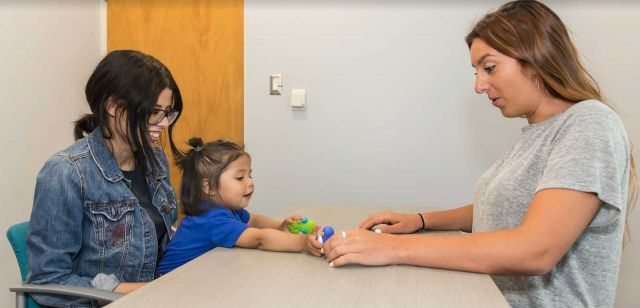
Language Exposure
Early experience profoundly influences children’s development. One type of experience social experience that varies drastically across children is their language background. Although a lot of research in the United States focuses on monolingual populations, across the world multilingualism is the norm rather than the exception. Children raised in multilingual environments have different social environments from their monolingual peers—in addition to learning how to effectively use two languages, they have to track other people’s linguistic perspectives, and think about who speaks in which language, and who can speak to whom. These differences in socio-linguistic environments can lead to differences in social cognition. For example, we found that children who were regularly exposed to more than one language (even if they technically only spoke English) were more effective social communicators than monolingual children: they were better able to take a speaker’s perspective when interpreting potentially ambiguous utterances. In fact, these communicative benefits may begin in infancy, before children are even speaking themselves. In ongoing projects, we are interested in how varying types of multilingual environments influence social cognition more broadly, including reasoning about mental states, intentions, flexible thinking, and decision-making.